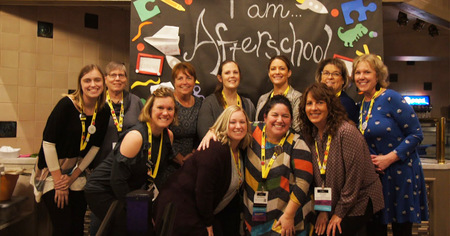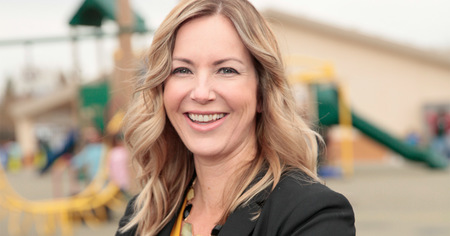Share your coaching experience this past year in integrating a model focused on transformational coaching.
Last fall the School of Leadership and Facilitation, a project of ASAPconnect housed in the Santa Clara County Office of Education, launched its first cohort of Technical Assistance, or TA Coaches. This project, funded through the SD Bechtel Jr. Foundation and the California Department of Education, partnered with Growth Coach Fred Jones and the California Afterschool Network to support a cohort of site-level leaders across California. As a certified professional coach, grounded in a transformation-based philosophy, I enlisted the support of my former mentors and coaching advisors to ground our cohort in foundational coaching strategies and skills. Coaching has been powerful for the TA Coaches to work on personal mastery, focus on their goals, navigate challenges and get affirmation of the talents they possess. It also gave them an opportunity to build the capacity of other team members in their local communities.
In your "Coach's Journey", what experience has had the most impact? Where have you been challenged?
It's been extremely moving to see people experience moments of clarity and openness to explore new possibilities. I've witnessed several people find their voice and take a stand for what is truly important to them. One particularly poignant experience was with a participant that shared examples of being held back by their management team. The realization of the "power and privilege dynamics" inspired them to step into their power. By doing so, they shifted their approach and became more aligned with their core values. This changed the trajectory of their career and created an improved working environment for them and their colleagues.
I have been challenged in coaching a few individuals that held drastically different core values that did not align with mine. Upon making the commitment to become a coach, I decided I would ground my approach in strategies supporting social justice and strive to challenge systemic racism. This has meant that if an individual is not in alignment with this, I may choose to opt out and not serve as their coach. The coaching relationship is grounded in mutual consent. It is important that the coach and the individual being coached are a good fit for one another.
How important is coaching as a strategy to support people and programs in Expanded Learning?
Coaching is a key strategy that supports personal and professional development of staff in the field of Expanded Learning programs. As a coach, leaders can leverage the unique talents of each individual member of their team to support them as they push themselves to grow in new and different ways. Coaching supports people to unlock what is possible. In addition, coaching helps people to be reflective, self-aware and focused on what is most important.
What transformation have you seen in your work and the people you work with?
The beauty of transformation is witnessing young and old leaders—who felt small and bought into this false notion that they were somehow "just a site coordinator"—shift their mindset. This new mindset empowered them to stand in their power, hold their head high and lead.
How is this type of "transformational" coaching different from others?
Many people refer to coaching and mentoring as one and the same. I've heard people use coaching, teaching and onboarding interchangeably. Coaching provides opportunities for individuals to consider thought-provoking questions, affirm the strengths they possess, and get support in navigating challenges related to work, life, or what is self-identified.
The key distinction of transformational coaching is the power to impact both coach and "client" in empowering ways. This journey has pushed me to go inward and deepen my capacity to hold space and be present for others, so they can be truly seen.
How do you anticipate deepening this work, amidst COVID-19?
The need for connection amidst COVID-19 and the requirement to physically maintain distance will increase the need for coaching. Many have expressed the struggles of isolation and will need support to feel connected and navigate this "new normal." Coaching will remain a key component of our leadership cohort as we continue to support California's Expanded Learning programs.
Contributors: Diego Arancibia, Director ASAPconnect, Santa Clara County Office of Education, NAA Executive member, and Julie Sesser, ASAPconnect Specialist, Santa Clara County Office of Education, Certified Professional Coach & Gallup Strengths Coach, NAA Ambassador member.
This article originally appeared in the Summer 2020 issue of AfterSchool Today.




